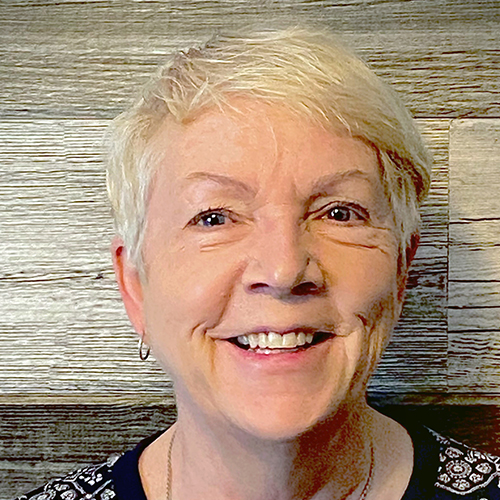 IBCLC Detailed Content Outline: Pathology / Infant Focused CERPs - Section III A
IBCLC Detailed Content Outline: Pathology / Infant Focused CERPs - Section III A
Access CERPs on Pathology / Infant for the IBCLC Detailed Content Outline recertification requirements. On-demand viewing of the latest Pathology / Infant focused IBCLC CERPs at your own pace.

A Neuroprotective Approach to Reduce the Risk for Intraventricular Hemorrhage (IVH) In ELBW Neonates

Sandy Jose, DNP, APRN, NNP-BC is a board certified Neonatal Nurse Practitioner (NNP) in the Level IV Neonatal Intensive Care Unit (NICU) at Texas Children’s Hospital. She completed her NNP education at Rush University in Chicago and her DNP at UT Cizik School of Nursing in Houston. Her passion for quality improvement has helped improve neurodevelopmental outcomes for preterm neonates by reducing the risk for intraventricular hemorrhage (IVH) through the establishment of her “Mindful of Preemies” protocol. She was also a key stakeholder for the development of Neuro-Protective Guidelines for the Small Baby Unit (SBU) Program for Extremely Low Birth Weight (ELBW) neonates. In addition, she continues to actively participate in various QI initiatives within the NICU.
Intraventricular hemorrhage (IVH) is a devastating and debilitating diagnosis commonly seen in premature neonates. Statistics indicate that 45% of extremely premature infants with very low birth weight develop IVH within the first week of life. IVH is associated with numerous acute and long-term neurologic and psychiatric complications. Additionally, it has led to a progressive increase in hospital costs and length of hospitalization.
IVH is multifactorial, but it is primarily attributed to the intrinsic fragility of the germinal matrix vasculature from prematurity and disturbances in the cerebral blood flow (CBF) from commonly seen complications in premature neonates. Seminal research studies support neurodevelopmental positioning (NDP) of high-risk preterm infants as a postnatal preventive approach to reduce the risk for IVH. Hospitals with low IVH rates utilize NDP.

Babies Cry to Communicate, Not to Manipulate... Non-Medical Reasons for Crying: An Anthropological Approach

Katrien Nauwelaerts graduated as a prehistoric archaeologist in 2005. She's the mother of three breastfed children and the administrator of the Dutch breastfeeding-website Borstvoeding Aardig, https://borstvoeding.aardig.be. Katrien worked as a volunteer breastfeeding-counsellor, provincial coordinator and training manager for the Belgian breastfeeding organisation Borstvoeding vzw between 2010-2014. Up tot 2018 she was the founder and president of Aardig Leven vzw, a non profit ecological organisation. In 2013 she became an IBCLC. Since 2013 she's working as a lactation consultant at her own private practice Borstvoeding Aardig. She became a nutritionist and a herborist in 2014. Katrien shares her experiences and knowledge on lactation consulting as a public speaker since 2014.
Topic: Breastfeeding and The Use Of Herbs - [View Abstract]
Topic: Young Mothers and Breastfeeding in Belgium - [View Abstract]
There is scientific research that says that breastfeeding duration shortens when parents experience their baby as a baby who cries a lot.
There are all kinds of medical reasons why a baby is crying. Crying is a way of communication for a baby. It's a cry for help.
But what if there are no obvious medical reasons for a baby's crying behavior?
This lecture explains sociological and anthropological factors that can influence crying behavior in babies.
Sometimes parents have false expectations about parenting and baby behavior. Sometimes cultural assumptions make parents believe they have a crying baby when they actually haven't. And some cultural or anthropological parameters can strengthen the crying behaviour in a baby. Learn more about normal newborn crying behaviour and how to help parents understand their newborn.
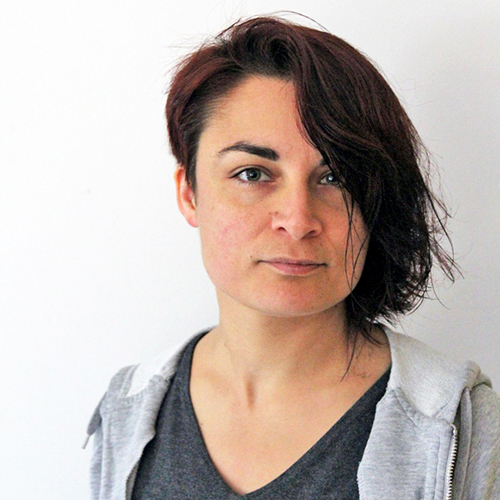
View Details / Enroll

Back to Basics for Cleft Lip and Palate: An Overview of Strategies to Support Lactation in the Neonatal Period and Beyond

Alice Farrow is an IBCLC, writer, speaker, and infant feeding and health equity advocate. Parent of a child born with a cleft lip and palate, Alice has worked extensively, since 2006, with parents, parent organisations, cleft teams health providers and lactation specialists in order to increase awareness of the specific challenges faced by cleft affected infants and their families and to imprve access to adequate lactation support for this community.
Currently based in Rome, Italy, Alice advocates for, and teaches regularly on, the topic of breastfeeding/chestfeeding with an oral cleft via presentations, courses, articles, booklets and handouts and supports parents and professionals wordwide via their Cleft Lip and Palate Breastfeeding website and associated online support group, and in person and distance consultations.
A common misconception among care providers and families is that babies born with an oral cleft cannot breastfeed/chestfeed. This presentation corrects that misconception by exploring cleft types and their expected breastfeeding/chestfeeding outcomes and sharing tools that lactation specialists can use to more effectively support parents when their baby is born with a cleft lip/palate. In particular, during the neonatal period, the lactation specialist is uniquely positioned to support parents to make informed decisions about their feeding choices and create a going home care plan to help them achieve their breastfeeding/chestfeeding goals in the long term.

View Details / Enroll

View Details / Enroll
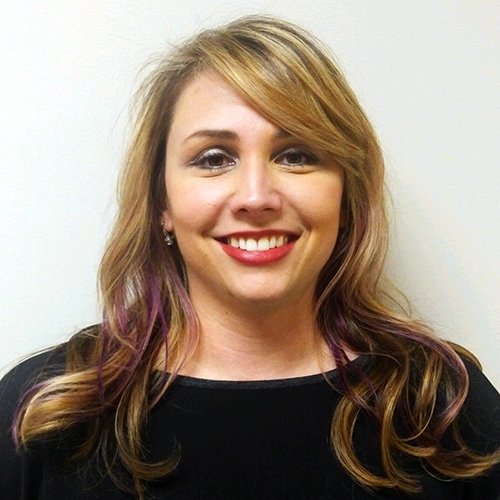
Breastfeeding and Neonatal Abstinence Syndrome

Amber Valentine is a Speech-Language Pathologist who graduated from the University of Kentucky with her MS in Communication Disorders. She is a Board Certified Specialist in Swallowing and Swallowing Disorders and an International Board Certified Lactation Consultant, as well as a Certified Neonatal Therapist (CNT). She worked for Baptist Health Systems, Inc for 8 years before moving to Florida where she worked for Wolfsons Children’s Hospital and Mayo Florida. She is now back in Kentucky working for Baptist Health Lexington. She has experience in adults and pediatrics with feeding and swallowing difficulties including: bedside swallow evaluations, Modified Barium Swallow studies, FEES, and pediatric feeding evaluations including NICU. She has experience with head and neck cancer patient including evaluation and treatment of swallowing difficulties, PMV use, and voice after total laryngectomy including TEP. She has provided guest lectures for the University of Kentucky, Eastern Kentucky University, and the University of Louisville on feeding and swallowing topics. She has presented at the hospital, local, state, national, and international levels on pediatric feeding/swallowing and breastfeeding.
Topic: Breastfeeding Medically Complex Infants in the Neonatal ICU - [View Abstract]
Topic: Building a Successful Breastfeeding Program in the NICU: Challenges and Practical Solutions - [View Abstract]
This presentation is designed to discuss the role of feeding therapy, breastfeeding, and family dynamics with infants with neonatal abstinence syndrome. These baby/family dynamics can be complex situations and feeding difficulties are extremely common. Breastfeeding education/information can be implemented prior to birth along with other education for families to promote more infant/family bonding and reduce stress of being born in substance exposure. Breastfeeding dramatically reduces stress signs in infants exposed to substances neonatally. Working together as an interdisciplinary team, we can set these families up for more successful feeding opportunities and decreased stress in developmental care.

View Details / Enroll

Breastfeeding as a Prevention Strategy for Speech Language Disorders

Lina Mazzoni is a Lactation Consultant, IBCLC with a Bachelors Degree in Speech and Language Therapy. Since 2013 she has been working primarily with children and specialized in the treatment of sucking, swallowing and feeding disorders. In 2019 she became a Lactation Consultant to be able to work equivalent with the children and the mother. As a working mom she worked part time as a Lactation Consultant in a hospital in Hamburg, started her own privat practice in 2019 and since october 2021 she works exclusively in her private practice as a lactation consultant and SLT. She also works as an Instructor in lactation education and further education regarding feeding developement and disorders . Lina has two children and lives with them and her husband in Hamburg, Germany.
Topic: Sucking Disorders in Children with Neurological, Muscular, Genetic or Anatomical Diseases - [View Abstract]
The prevention and early treatment of diseases is part of a Speech and Language Therapist's working field.
The question is, at what point can SL Therapy have a preventative influence, what are the advantages of early consultations and treatments and what significance does a nursing and lactation consultation have in this context. Asha and Fletcher (2005, S.1) called a SL Therapist and a Lactation Consultant a "Baby's feeding dream team", so the combination of these two professions might be a good way to facilitate difficult breastfeeding relationships and reduce SL disorders over the years.
Breastfeeding is the physiological way to feed a baby. It supports the Mother-Child-Bond and sets the foundation for the undisturbed organic, sensorial, motoric, cognitive, oral and social development. If there is a problem with the ingestion of food (oromotor dysfunction or dysphagia), the topic of breastfeeding tends to move to the background. But what if breastfeeding can be used as part of the therapy? Promoting early SLT and by supporting the breastfeeding and preventing the use of artificial teats, which can have a negative influence especially on the oromotor and muscle development, the outcome might improve.

View Details / Enroll

View Details / Enroll

Breastfeeding Medically Complex Infants in the Neonatal ICU

Amber Valentine is a Speech-Language Pathologist who graduated from the University of Kentucky with her MS in Communication Disorders. She is a Board Certified Specialist in Swallowing and Swallowing Disorders and an International Board Certified Lactation Consultant, as well as a Certified Neonatal Therapist (CNT). She worked for Baptist Health Systems, Inc for 8 years before moving to Florida where she worked for Wolfsons Children’s Hospital and Mayo Florida. She is now back in Kentucky working for Baptist Health Lexington. She has experience in adults and pediatrics with feeding and swallowing difficulties including: bedside swallow evaluations, Modified Barium Swallow studies, FEES, and pediatric feeding evaluations including NICU. She has experience with head and neck cancer patient including evaluation and treatment of swallowing difficulties, PMV use, and voice after total laryngectomy including TEP. She has provided guest lectures for the University of Kentucky, Eastern Kentucky University, and the University of Louisville on feeding and swallowing topics. She has presented at the hospital, local, state, national, and international levels on pediatric feeding/swallowing and breastfeeding.
Topic: Breastfeeding Medically Complex Infants in the Neonatal ICU - [View Abstract]
Topic: Building a Successful Breastfeeding Program in the NICU: Challenges and Practical Solutions - [View Abstract]
Feeding is the most complex task of infancy, even in term babies with no complications. There are many diagnoses, conditions, syndromes, and co-morbidities that can impact feeding in neonates and infants. This talk will briefly highlight many of those, but we will focus on three specific populations of interest –Cleft lip and palate, Infants of Diabetic Mothers, and Down Syndrome. We will discuss the specific implications these conditions can have on feeding, why these infants may have difficulty, and the classic symptoms one could expect to see. The differences between delayed and disordered feeding will also be addressed. Strategies and adaptions for both breast and bottle feeding will be discussed. Positioning, nipple flow rate, and external strategies will be explained. Case studies will be shared at the end of the presentation.

View Details / Enroll

View Details / Enroll
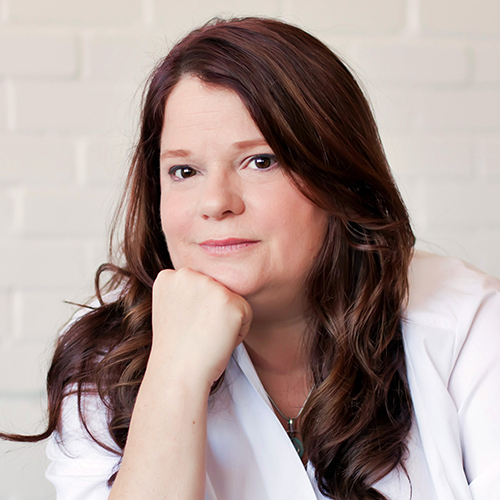

Barbara D. Robertson, IBCLC, has been involved in education for over 34 years. She received a Bachelor’s degree in Elementary Education in 1988 and her Master’s in Education in 1995. Barbara left teaching elementary students in 1995 to raise her two children. Barbara is now the Director of The Breastfeeding Center of Ann Arbor and of the brand new business LactaLearning.
The Breastfeeding Center of Ann Arbor will still continue to serve breast/chestfeeding families and now LactaLearning will be dedicated to all of Barbara’s professional lactation trainings. Barbara has developed two 95 hour professional lactation training, a group training and a completely self study training with Nancy Mohrbacher. Barbara’s idea of creating professional book groups has exploded with her hosting Making More Milk with Lisa Marasco, Supporting Sucking Skills with Cathy Watson Genna, Breastfeeding Answers, 2nd Edition with Nancy Mohrbacher, and new for the fall, Safe Infant Sleep with Dr. James McKenna. Barbara will be hosting a one day online conference in the fall with Lisa Marasco and Cathy Watson Genna using all of her tech savvy skills to make this a one of a kind experience. Barbara is also a speaker for hire on a wide variety of topics including Motivational Interviewing. Barbara volunteered for the United States Lactation Consultation Association as the Director of Professional Development for 4.5 years.
She just retired as Associate Editor for Clinical Lactation, a journal she helped create for USLCA. Barbara has free podcasts, a blog, and Youtube videos which can all be found on her websites lactalearning.com and bfcaa.com. She has written many articles as well. She loves working with parents and babies, helping them with breast/chestfeeding problems in whatever way she can.
Topic: Breastfeeding: Baby’s First Milestone - [View Abstract]
Topic: Clinical Assessment and Management of Low Milk Production - [View Abstract]
Topic: Deconstructing Online Messaging: Ethical Considerations - [View Abstract]
Topic: Milk Sharing and Milk Banking: Building Knowledge for Better Outcomes - [View Abstract]
Topic: The Baby's Not Gaining Weight! Now What? - [View Abstract]
Topic: The Great Nipple Shield Debate - [View Abstract]
Breastfeeding is widely acknowledged as being the healthiest way to feed an infant for at least two years. In the United States of America, the CDC 2014 Breastfeeding Report Card states that 79.2% of mothers start out breastfeeding. However, as the babies get older, these numbers plummet. Only 49.4% of these babies are receiving any breastmilk by 6 months of age. We know from the literature that the primary reasons mothers stop breastfeeding in these early months are pain and worrying about their breastmilk supply. These are problems with solutions if the proper support is in place. Why is this support lacking? Is it because for all of the talk, “breast is best”, the importance of breastfeeding is not really valued? What if successful breastfeeding was reframed into a milestone? Baby’s first milestone? This presentation will explore other milestones, walking, talking, and learning to read, and what happens if babies and young children are not reaching these markers in a reasonable time frame. What support systems are in place to help these milestones be achieved if babies are faltering? The possible reasons for a baby not being able to breastfeeding and possible solutions will then be examined from the lens of having proper support systems in place.

View Details / Enroll


Melissa Cole, MS, IBCLC, RLC is a board certified lactation consultant, neonatal oral-motor assessment professional, and clinical herbalist in private practice. Melissa has been passionate about providing comprehensive, holistic lactation support and improving the level of clinical lactation skills for health professionals. She enjoys teaching, researching and writing about wellness and lactation-related topics. Melissa holds a bachelor of science degree in maternal child health and lactation consulting and her master’s work is in therapeutic, clinical herbalism. Melissa actively conducts research and collaborates with several lactation and health care professional associations. Before pursuing her current path, Melissa’s background was in education and cultural arts, which has served her well in her work as a lactation consultant and healthcare educator. She loves living, working and playing in the beautiful Pacific Northwest with her 3 children.
Topic: Beyond Fenugreek: An Individualized Approach to Dietary and Herbal Galactagogues - [View Abstract]
Topic: Beyond the Basics of Latch: Support Strategies for Helping Babies when the Basics Aren’t Enough - [View Abstract]
Topic: Common Infant Digestive Health Concerns and Useful Support Strategies - [View Abstract]
Topic: Connection and Care: Virtual Support for Tongue-Tied Infants - [View Abstract]
Topic: Feeding is Movement: Activities for Supporting Optimal Infant Oral Function - [View Abstract]
Topic: Infant Gut Health: Common Concerns and Useful Support Strategies - [View Abstract]
Topic: Infant Oral Assessment: Exploring Anatomy and Function Beyond the Frenulum - [View Abstract]
Topic: Low Milk Production Detective Work: Assessment and Care Plan Considerations - [View Abstract]
Topic: Nature’s Nurturers: Plant Medicine for Perinatal Mental Health - [View Abstract]
Topic: New Thoughts on Infant Pre and Post-Frenotomy Care - [View Abstract]
Topic: Placenta Medicine as a Galactogogue: Tradition or Trend? - [View Abstract]
Topic: Thinking Critically About the Use of Clinical Lactation Tools - [View Abstract]
Topic: Will It Hurt? Frenotomy Aftercare Strategies to Optimize Healing Outcomes for the Newborn - [View Abstract]
This session will focus on common concerns regarding infant digestive health and useful support strategies that care providers can incorporate into their work with families. We will discuss what's normal and what's not in regard to stooling, spit up/reflux, colic/fussiness, food sensitivities, and more. Many parents are coping with babies that are uncomfortable and unhappy due to digestive health concerns. Dealing with a fussy, uncomfortable baby is emotionally and physically draining. Having a basic understanding of infant gut health and care strategies can be useful tools for any type of practitioner working with infants.

View Details / Enroll
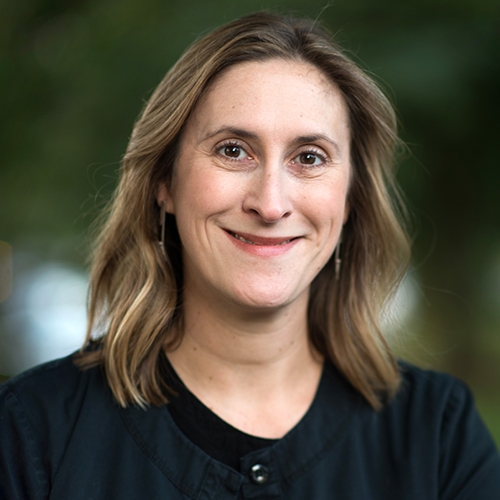
View Details / Enroll
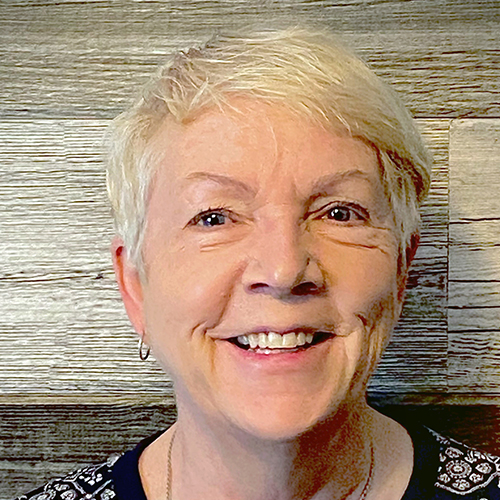

Debbie Fraser is an Associate Professor, Faculty of Health Disciplines, Athabasca University and a neonatal nurse practitioner in the NICU at St Boniface Hospital in Winnipeg Manitoba. She is the editor-in-chief of Neonatal Network and is the Executive Director of the Academy of Neonatal Nursing. Debbie has published three textbooks and over 70 book chapters and peer reviewed articles on topics related to high-risk newborns.
Topic: Late Preterm Infants: Not as Grown up as they look! - [View Abstract]
Topic: Not always a safe place: Intrauterine Infections - [View Abstract]
We think of the fetus as living in an impenetrable environment, protected from the outside elements. While most bacteria are too large to cross the placental barrier or infiltrate the amniotic membranes, some bacteria, viruses and parasites are capable of reaching the fetus and causing intrauterine infections. Over the years, the list of organisms responsible for these infections has grown with the addition of pathogens such HIV and West Nile Virus. Most recently, a resurgence of congenital syphilis has been identified in newborns born to women with an active infection in pregnancy. This session will review pathogens responsible for intrauterine infection with particular attention to congenital syphilis. A review of the effects of these infections will be accompanied by a discussion of the diagnosis, management and prognosis of intrauterine infections.


Carole Hervé is a private IBCLC (since 2011). She helps breastfeeding mothers at home or location of their choice, mostly in Paris and in the nearest neighborhood.
Prior to opening her private practice, she has been a La Leche Leader since 2008. Carole is passionate about information-gathering, education, articles writing, communications and training to provide lactation consulting and sensitive support to the families she works with.
She has been trained to support families with Sensory Food Aversion issues by Catherine Senez, a speech therapist in 2013 and is also BNCLC (Biological Nurturing Certified Lactation Consultant®).
She has been a speaker at the GOLD Lactation Online Conference in 2012, and in 2013 she translated 20 presentations from the GOLD Lactation Online Conference into French.
Carole has been strongly involved in the coordination of the International Breastfeeding Day (Journée Internationale de l’Allaitement), an event organized by La Leche League France. Carole is the mother of three children born in 2001, 2003 and 2006.
Children with Sensory Food Aversions consistently refuse to eat certain foods related to the taste, texture, temperature, smell and/or appearance. Feedings or mealtimes are therefore a displeasure for everyone.
Oral disorders are eating disorders caused by hypersensitivity.
Food aversions are common and believed to occur along a spectrum of severity, with some children reluctant to try new foods, and refusing whole food groups (vegetables, fruits, meats). Indeed, after an aversive experience, some children tend to generalize and refuse foods that look and/or smell like the aversive food (e.g., aversion to broccoli may be generalized to all green foods).
Reactions to the aversive foods can range from grimacing to gagging, throwing up, or spitting out the food. Some babies cannot even accept to be touched near their face, or mouth, they may not accept to be held in a wrap. Some children can't stand to have dirty hands, to walk in the sand, to be touched.
While this can be a challenge when a mother is trying to start solid food, this hypersensitivity may also even start with breastfeeding.
Babies need proper nutrition to grow and thrive, and difficulties with feeding in infancy can be a worrisome and become a dangerous condition. There are many different reasons why a baby may struggle with feeding. All merit evaluation and treatment. This conference aims at exploring solutions to support families who deal with oral aversion.

View Details / Enroll

View Details / Enroll












